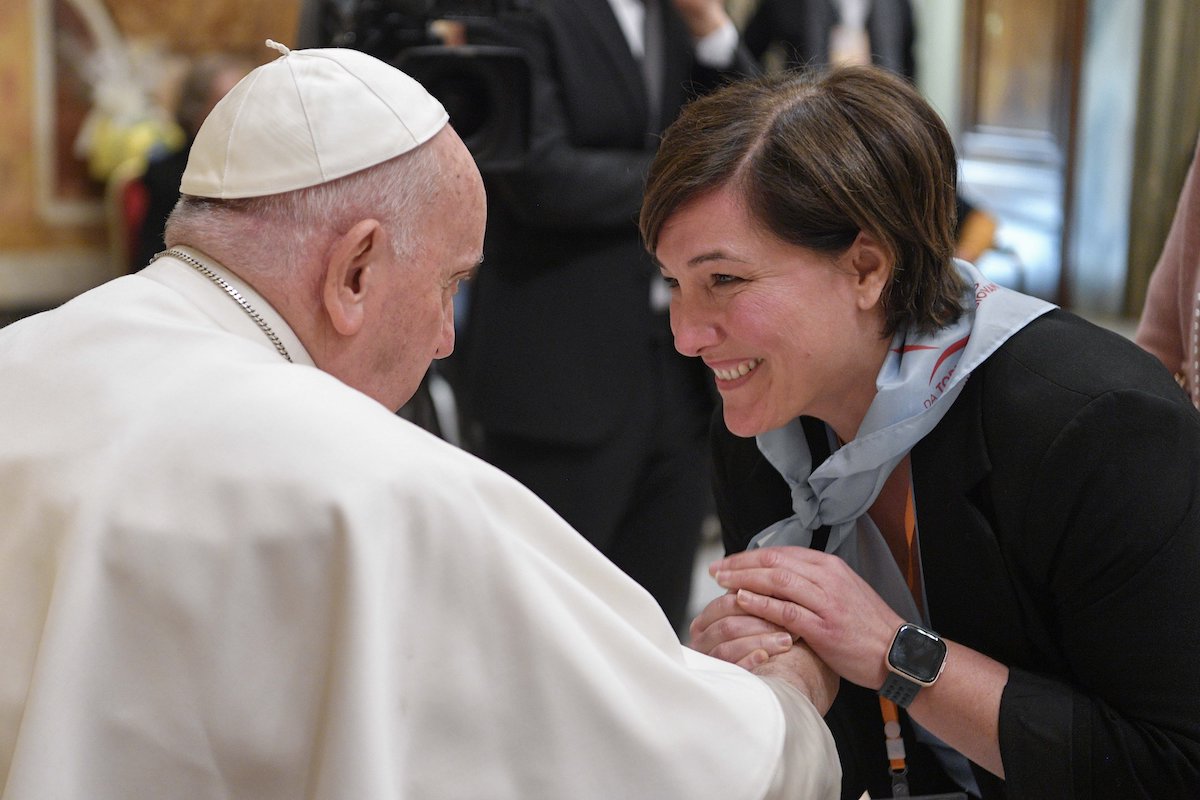By Cindy Wooden, Catholic News Service
VATICAN (CNS) — The secret to lovingly ministering to others is first allowing oneself to experience the overwhelming love of God, Pope Francis told priests belonging to the Josephites of Murialdo, the Murialdine Sisters of St. Joseph and the laypeople who work with them.
Marking the 150th anniversary of St. Leonard Murialdo founding the Congregation of St. Joseph in northern Italy March 17, the pope said that “allowing himself to be loved by God” was “the secret of his life and his apostolate.”
“Not just loving, no, letting himself be loved,” the pope said. “That passivity — and I underline that word — that passivity of consecrated life grows in silence, in prayer, in charity and service.”
Today as well, he said, Christians must let themselves be loved by God before they can be credible witnesses of his love.
“Let us always increasingly allow his love to guide our affections, thoughts and actions. Not rules,” the pope said.
Pope Francis told them that in the early 1900s, Jesuit Father Wlodzimierz Ledóchowski, who was superior general of the Jesuits at the time, tried to compile rules for everything in the Society of Jesus, including for the cooks; when he showed his project to a Benedictine abbot, the abbot responded that if he issued the document, it would “kill” the order.
“When you want to regulate everything, you ‘cage’ the Holy Spirit,” the pope said. “And there are many — religious, consecrated people, priests and bishops — who have caged the Holy Spirit. Please leave room for freedom, leave room for creativity. Always walk with the guidance of the Spirit.”
In Turin in the 1800s, when St. Leonard lived and worked there, the city was a center of anti-clericalism and of Masonic activity, the pope said. Yet it also was a time and place that gave birth to “saints — and many of them, not just one. … We should study why.”
St. Leonard “became a spokesman for the prophetic word of the church in a world dominated by economic and power interests, giving voice to the most marginalized,” Pope Francis said.
And he understood the dignity of the laity in the life and work of the church, the pope said. A century before the Second Vatican Council, St. Leonard wrote that “a layperson, from whatever social class, can be … an apostle no less than the priest and, in some environments, more than the priest.”
“In that era this sounded like Protestantism,” the pope said. St. Leonard “was courageous. He was an intelligent, open man of God. I invite you to cultivate his same passion and his same courage: together — lay people, religious men and women — on shared paths of prayer, discernment and work, to be artisans of justice and communion.”






